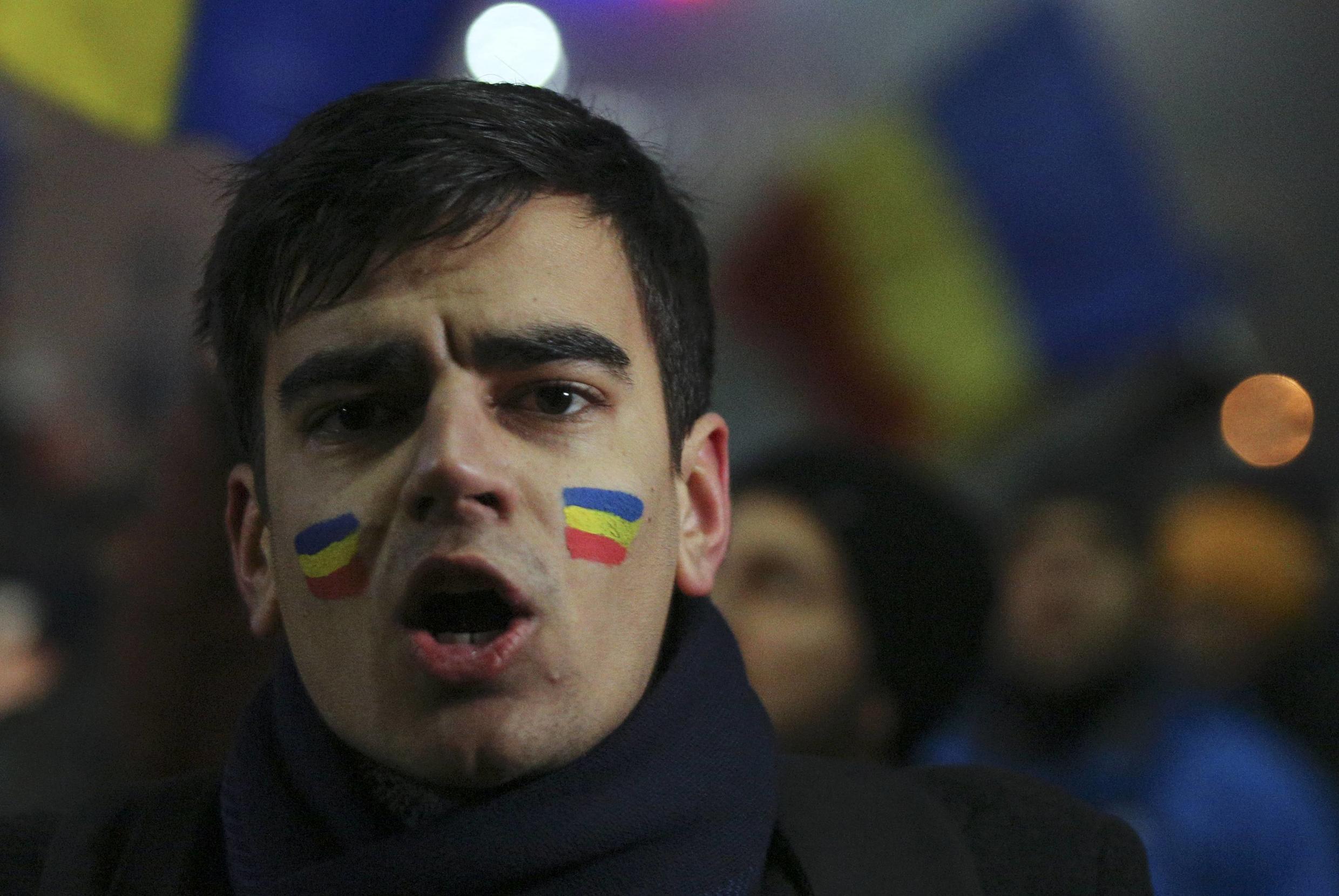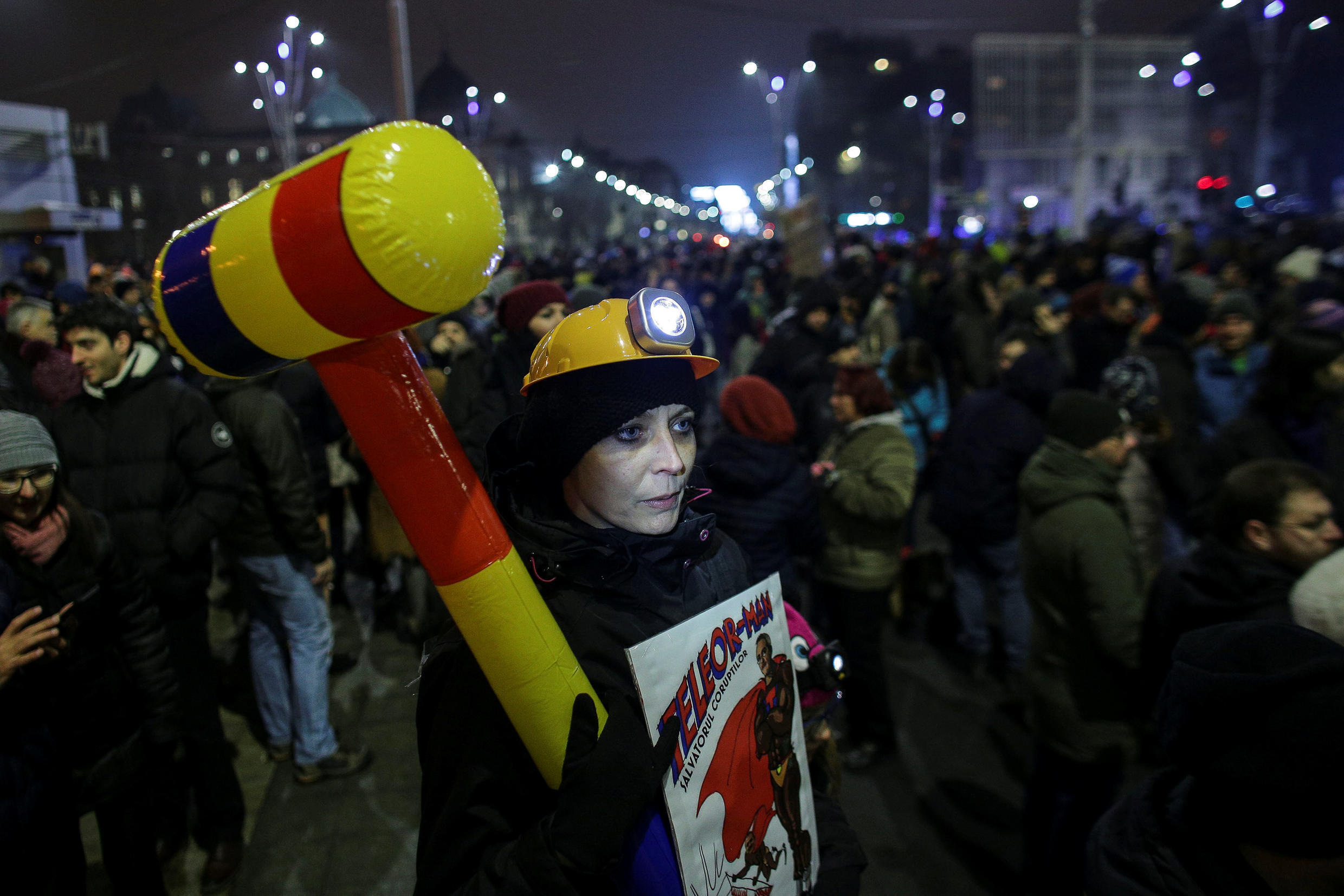Why corruption hasn't stopped Romania from taking charge of Europe
As EU foreign ministers meet in Romania to discuss the political upheaval in Venezuela, among other things, one subject that won’t be on the books is Romania’s own political wrangling. The current holder of the EU presidency was this week reaffirmed as one of the most corrupt countries in Europe. So how is Bucharest managing to pull off these dual roles?
Issued on:

When global watchdog Transparency International published its Corruption Perceptions Index on Tuesday, Bulgaria, Greece and Hungary were the talking points of the EU – having logged the sharpest falls in state corruption levels. TI blames the rise in populist leaders who it says are using fear to promote undemocratic principles.
After improving slightly in recent years, Romania has declined by one point in the latest index. Transparency International Europe director Carl Dolan told RFI that despite more than 10 years of European Union membership, Romania has consistently ranked poorly.
“What’s intensely disappointing is that despite the efforts that were made during the accession process to improve the judiciary and to improve the fight against corruption, Romania is still lagging behind, and still has weak institutions,” he says.
“Along with Bulgaria, Romania is in ‘special measures’. There’s a cooperation and verification mechanism in place that brings added scrutiny by the European Commission on anti-corruption efforts and judicial reform.
"Just this month we’ve seen the interim head of the anti-corruption agency (Anca Jurma) essentially pressured into resigning. She cited a hostile environment in Romania as her reason for leaving the post, and I think that gives you some indication of how far there is to go.”

Romania may be on an EU watch list, and it may be deflecting ongoing EU criticism of its criminal and justice laws, but the country’s ruling Social Democratic Party (PSD) – which has a parliamentary majority – is unapologetic. Several senior politicians have been unafraid to criticise Brussels, while the PSD’s deputy speaker, Florin Iordache, literally gave the EU the middle finger in parliament.
Bitter political cohabitation
Romania’s shaky political climate has seen it plough through four prime ministers in the past two years. The PSD, which is centre-left, is locked in a difficult cohabitation with centre-right President Klaus Iohannis, of the main opposition National Liberal Party.
It’s not a good moment for Romania to be in charge of Europe, says Alina Mungiu-Pippidi, a Romanian professor of democracy studies at Berlin’s Hertie School of Governance in Berlin, whose research focuses on anti-corruption policy. In Romania, the very process of fighting corruption has gotten political, and is now feeding the country’s political conflict, she adds.
“Over the past two years we've seen a conflict between people who have won elections and won them clearly – twice in a row with 50 percent and over of the vote – and people who lost elections. So we have a cohabitation between the president, who lost direct presidential elections, and the Social Democrat, who won legislative elections twice in a row – and that is the tension,” Alina Mungiu-Pippidi says.
“Romania does not have the maturity to bring these two sides together and understand that this EU presidency is actually an occasion when we should deal with European problems. Romanian problems can be dealt with at the next elections, as is normal and democratic.”

Divided media landscape
It’s business as usual as far as Romania’s majority-wielding government is concerned, regardless of the political volatility. And getting on with the job is either a good thing or a bad thing, depending on what side of the political divide you fall. Reports in one half of Romania’s media – the side that supports the government – suggest its stint at the helm of the EU is a point of pride. Of course the other half sees things very differently, says Ioan Bogdan Lefter, a political analyst in Bucharest.
“The Romanian media is clearly and sharply split into two parts. There’s the media that supports the government and the parliamentary majority with a very open political agenda and undisguised political connections. They always support what is in the government’s interest and spread their propaganda. The other half of the Romanian press is very independent and critical of this,” Bogdan Lefter says.
“The media reports on all topical issues according to these two general positions. While one side is reporting that Romania’s president is unprepared and is being manipulated … the other side keeps on triumphantly reporting that Romania is doing well and everything is perfect and all of the critics are wrong.”
Romania may be one of five EU countries that’s considered to be more corrupt than it is clean, but as EU foreign ministers meet in Bucharest to discuss the world’s problems, at least for now they’ll be turning a blind eye to what Transparency International has ranked a failing democracy.
Daily newsletterReceive essential international news every morning
Subscribe